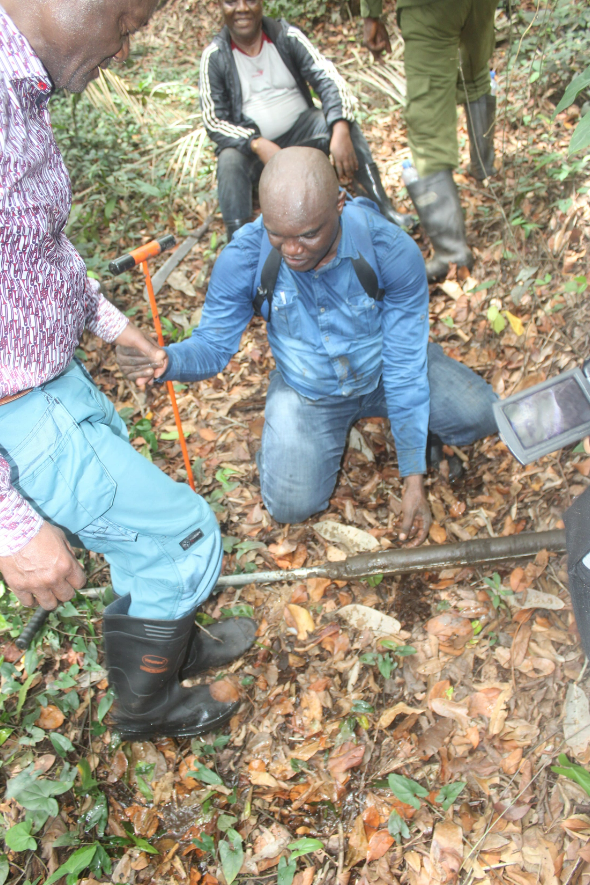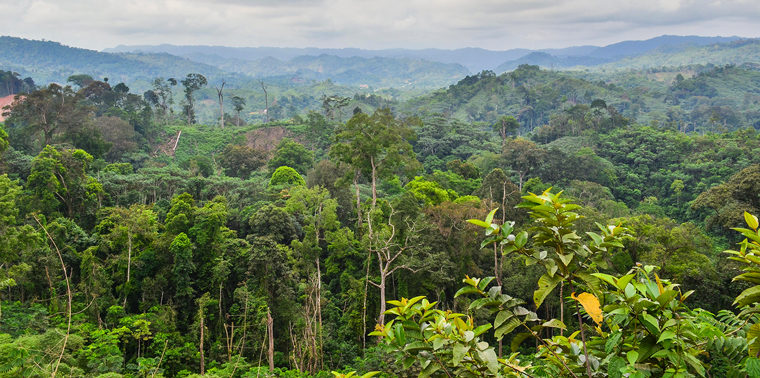Not the rainforest that covers Brazil but the one stretched out over half of the Democratic Republic of Congo (DRC) is in fact the green lung of the world, scientific data published in light of the ongoing COP27 climate conference shows.
The DRC is the second largest tropical forested country in the world and has the greatest landmass of tropical rainforests in Africa, covering more than 100 million hectares. Forest in the country stores 7% of the world’s forest carbon, making it one of the largest forest carbon stocks in the world.
However, as previously reported by The Brussels Times, the rainforests and peatlands in DRC are in danger after the country’s government last July auctioned off 27 oil and three gas fields to international oil companies. The fields encompass an area of more than 240,000 km2 that is storing vast amounts of carbon.
"The DRC is the country where the solutions to the climate problem can be found," said Jean-Jacques Bambuta Boole in a press release. He is the coordinator of the 'Unité de Gestion des Tourbières in Congo,' a department of the Congolese Environment Ministry that manages a large peatland area of 114,500 km² in the central basin of the Congo River.
The country also has extensive wetlands and mangrove swamps that also sequester carbon in vast tracts of peat cover. For the conservation of these peatlands, scientific research and monitoring, Bambuta Boole receives support from a group of Belgian scientists led by VUB professor Ann Van Griensven.
'Ecological disaster'
"Peat is an ancient ecosystem that stores a lot of carbon – an estimated 30 billion tonnes," said Bambuta Boole. "It has been active for at least 10,000 years and is growing by a few fractions of a millimetre every year."
By comparison, a report by the International Energy Agency found that in 2018 a combined total of around 33.1 billion tonnes of greenhouse gases were emitted globally from burning fossil fuels. Carbon sinks such as peat fields lock in over 9 billion tonnes. Should the peat dry up or be excavated or destroyed "it will mean an ecological disaster."
Were this to happen, the entire stored carbon stock would be released back into the atmosphere at an accelerated rate, driving global warming at an even faster rate.
"But that is not all," said Bambuta Boole. "Based on scientific data from measurements in the Isangi area in Tshopo province, the Congolese forest sequesters more carbon per hectare than the Amazon forest. If we add to this the importance of the peatlands, the Democratic Republic of Congo is the lung of the world, not Brazil."

Credit: VUB
"Along with peatlands, mangroves and vast wetlands are a huge ecological asset in the fight against global warming... realising and protecting this is a serious task."
Belgian collaboration
To this end, Bambuta Boole sought help from the VUB during a scientific-economic mission of the Brussels-Capital Region to the DRC. With mediation by Brussels MP Pierre Kompany, the VUB will take on a coordinating role for all scientific work needed to protect the territories and also carry out important research.
"There is a lot of work," VUB professor and hydrologist Ann Van Griensven said about this. "There is important scientific research to be done, all in collaboration with Congolese scientists and with other Belgian scientific partners to better map the peatlands and better understand their functioning, both in relation to water management in the peatlands and in terms of soil structure."
Additionally, the VUB wants to conduct socio-anthropological research and see how it can involve the communities that have lived and worked in these areas for generations to protect the area.
Related News
- Brazilian President Lula wants to hold COP30 in the Amazon'
- Global CO2 emissions to break new records in 2022
- COP27: Belgian PM De Croo's speech criticises climate activists
"It is of utmost importance that we put the Congolese ecological buffer on the agenda of world leaders so that we can make its planetary role clear to the whole world," Van Griensven said. "Opportunities also present themselves for scientists from the DRC to build expertise outside Congo."
Bambuta Boole will visit the VUB to carry out a PhD on the management of Congolese peatlands. He started his scientific career as an anthropologist but has been working full-time on the environment since 2010.
First involved in plans to tackle carbon emissions in Congo, he was later seconded to manage peatlands for the ministry.

